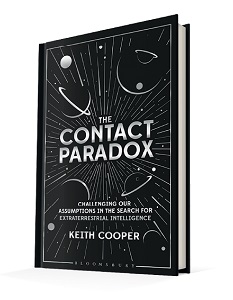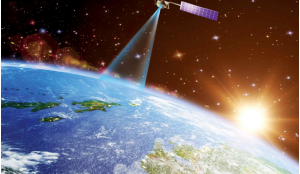The Search for Extraterrestrial Intelligence (SETI) dates back to 1960, when American radio astronomer Frank Drake made the first serious search for signals that might have been transmitted by an alien civilisation. He didn’t find any, but that hasn’t stopped SETI developing into a field of scientific research in subsequent decades. This book tells that story and, according to its subtitle, challenges the assumptions made in the search for ETI.
In the author’s opinion, SETI often concerns itself with the (admittedly “vital”) technical aspects of the search, but this is “only one side of the coin”, he says. In this book, Cooper “cross[es] the borders between disciplines and embrace[s] the social sciences”. Indeed, you get a feel for the treatment when you read “This is not your parents’ SETI. Strap in, and get ready for a twenty-first-century SETI”.
The free-ranging text is divided into eight chapters, which discuss “The Altruism Assumption” (i.e. that ET will be friendly), “Intelligence” (the assumption that ET is much like us albeit technologically superior), and Messages from Earth (the question of whether it is safe to transmit messages or, as Stephen Hawking argued, that would place humanity in jeopardy). It could also be argued that such questions are sufficiently important to be on the syllabus of any social science degree; and if so, this book should be on the reading list.
The copy reviewed was a paperback ‘advance reading copy’, so I cannot comment on production values, any illustrations included or even the missing index. It is my understanding that an index will be included, which would lift the book from being simply interesting to being useful.
As science fiction author Stephen Baxter states in his Foreword, “If SETI succeeds, first contact will probably be a moment of crucial importance, our first and best chance to make a lasting impression on the alien”. Crucial indeed, especially considering the need to distance ourselves from all the Hollywood output on first contact that – thanks to radio transmissions - might precede that first sensible dialogue.











